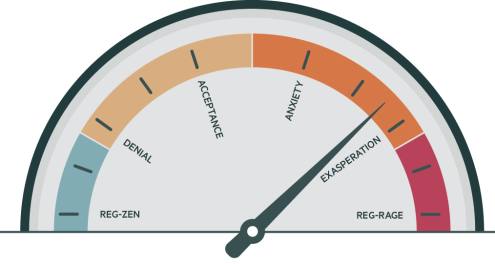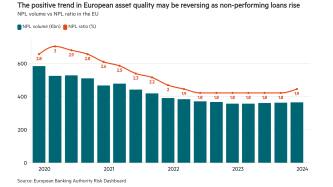Non-financial misconduct has been on the Financial Conduct Authority’s (FCA’s) radar for many years. While historic statements and its recent consultation paper — released alongside the Prudential Regulatory Authority’s — set out a hard line on it, the regulator hasn’t forgotten how complex an issue misconduct can be.
No better is this illustrated than within a proposed carve-out to new guidance on conduct rules, which could take the nuance of neurodiversity into account.
According to the FCA’s recent Consultation Paper on Diversity and Inclusion in Financial Services, clarifications on non-financial misconduct would relate to:
- Conduct Rule breaches under the FCA’s Code of Conduct for Staff sourcebook (COCON).
- Assessing fitness and propriety under the Fit and Proper test for Employees and Senior Personnel.
- Assessing a firm’s threshold condition of suitability.
Non-financial misconduct under COCON could cover a wide range of actions directed at people related to a firm, if linked closely enough to the work relationship.
Because Conduct Rule breaches must be reported to the FCA (and Prudential Regulatory Authority where relevant), if disciplinary action is taken (including the reduction or recovery of remuneration), they may have significant repercussions for the individuals involved.
A breach of Conduct Rules usually must be “serious”. However, the FCA’s proposed specific guidance added to Conduct Rule 1: “You must act with integrity: Misconduct in relation to fellow members of the workforce” gives examples which, in the proposed wording, “will breach rule 1”.
Under the proposed new rules, conduct technically falling within these examples could be a COCON breach, even if not viewed as “serious”. Handling such misconduct could be difficult when it could range from the relatively trivial (an ill-judged joke or comment) to the seriously criminal.
On the current wording, firms may be forced to conclude there has been a Conduct Rule breach at either end of this scale.
While some examples of breaches of rule 1 clearly would be serious (e.g. violent conduct), other examples might be subjective. For example, “intimidating conduct” or “unwanted conduct that has the … effect of creating an … offensive environment”.
Who decides whether conduct is intimidating or offensive, especially with no reference to seriousness? Is it only the person on the receiving end?
The carve-out
Given these potential issues, the proposed guidance in relation to Conduct Rule 1 contains a limited “carve-out”, appearing to acknowledge cases that are not clear-cut, including the challenges that neurodiverse people face.
Behaviour falling within the breach of integrity examples in relation to fellow members of the workforce may be outside Conduct Rule 1 if the conduct rule staff member thought there was a “good and proper reason” for the conduct, or “did not intend to have a negative impact on the subject of the misconduct, did not know they were doing so, and was not reckless about the effect of their conduct”.
A “good and proper reason” must be backed up by a reasonable belief.
An unreasonable belief may point to a lack of integrity, and in terms of belief, bullying, sexual harassment, or violence cannot be justified. However, the carve-out could allow firms to exercise judgement in circumstances where they have reasonably concluded that the person neither intended nor knew that their conduct might have a negative effect, despite it falling within the listed examples.
If the carve-out applies, Conduct Rule 2 could still be breached instead (acting with due skill, care and diligence).
Interpretation of intention
Some of the proposed examples of breaches of integrity are extremely similar to the definition of harassment under the Equality Act 2010: unwanted conduct having the “purpose or effect” of creating various environments.
However, the Equality Act comes with established case law to judge whether the conduct was unintentional and/or whether the victim’s (subjective) perception of the “effect” is (objectively) reasonable.
One case suggested that dignity would not be violated by things said or done that were trivial, transitory and where it should have been clear that any offence was unintended. This case law under the Equality Act 2010 is not linked to COCON, but may prove a useful source of interpretation for the COCON proposed carve-out.
The carve-out is a welcome provision for firms where circumstances might be very nuanced, but issues are likely to remain about interpretation.
Consideration for neurodiversity
With one in seven of the UK population being neurodiverse, the carve-out could prove particularly important.
It could be argued that within these groups, as part of a successfully diverse workforce, there will be those who may be unaware that their behaviour could be interpreted as offensive.
Conversely, a neurodiverse person may experience “serious alarm or distress” from conduct which they felt was “unreasonable” (another example in the list) but which others would not.
In this instance, if this carve-out were utilised, a firm would subsequently need to provide training for the person causing the issue. The goal would be to help them understand why their behaviour or comments could be offensive.
Training makes the carve-out a conundrum
If such behaviour recurs after training, a firm is unlikely to be able to utilise the carve-out again and may find there has been a Conduct Rule breach.
Firms will need to tread carefully, however.
If the person causing the issue is neurodiverse, this may well amount to a disability requiring reasonable adjustments. There could technically be a Conduct Rule breach, but a firm may decide that no disciplinary action should be taken — removing the requirement to report it to the regulator.
However, this is unlikely to be seen as an appropriate response to non-financial misconduct by the regulators and may place the managers and firm at risk. It is worth noting that this obligation would need to be balanced against the conduct and its effect on the victim.
If the changes go ahead, firms will need to carefully investigate the three strands of intention, knowledge, and recklessness as to any negative impact on a person raising allegations (or reasonable belief of a good and proper reason).
A conclusion that there was no Conduct Rule breach without thoroughly testing these points could result not only in whistleblowing and supervisory action but also employment tribunal claims and reputational damage.
Human resource departments are already treading a very fine line and facing claims relating to opposing views that may be expressed by their workforce. Financial services firms not only need to ensure they abide by the proposed rules on non-financial misconduct, but that they apply this carve-out very carefully when balancing the conflicting impact on everyone involved.
Claire Carroll and Sophie White are partners at law firm Eversheds Sutherland.












